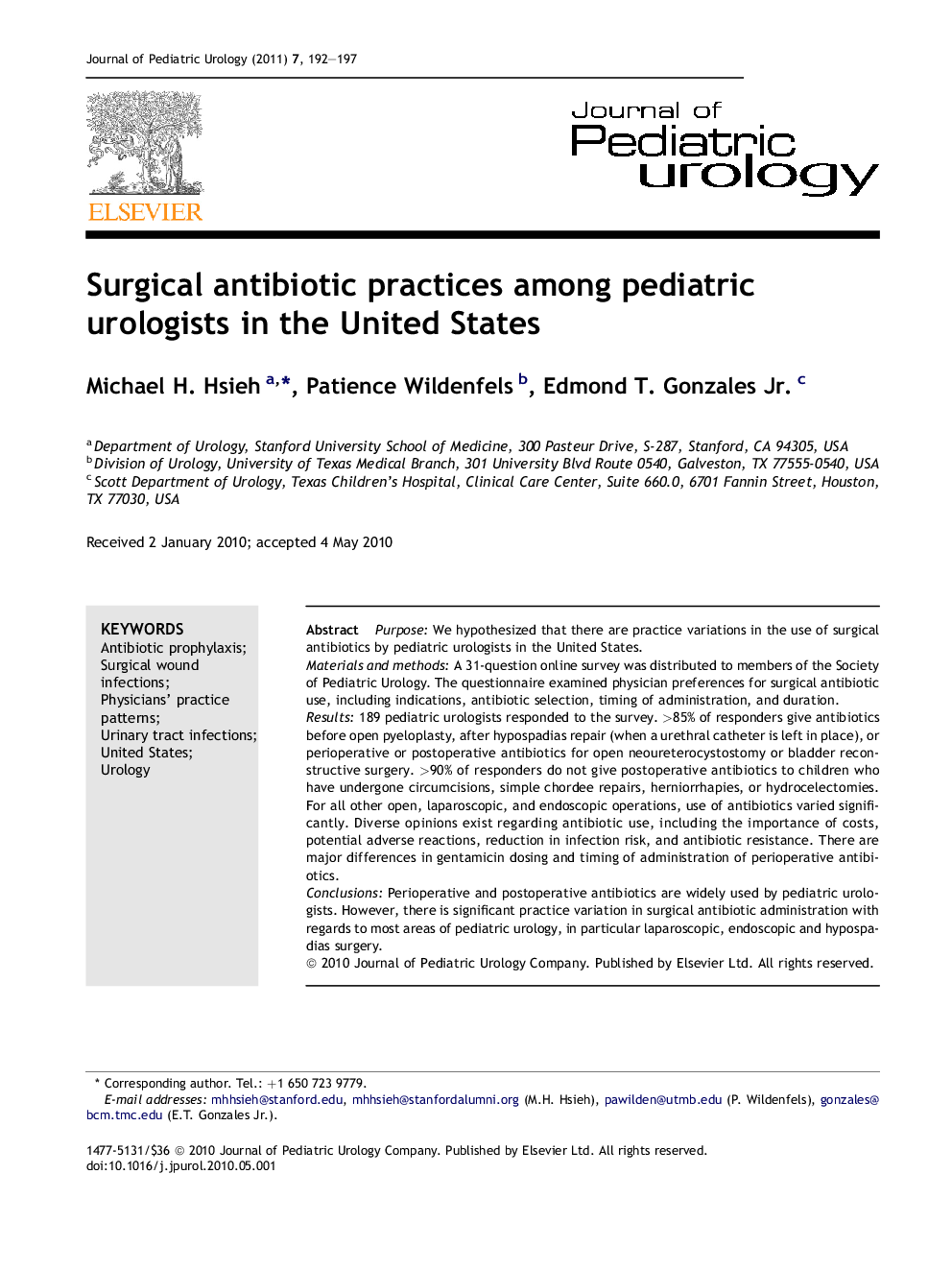| Article ID | Journal | Published Year | Pages | File Type |
|---|---|---|---|---|
| 4162865 | Journal of Pediatric Urology | 2011 | 6 Pages |
PurposeWe hypothesized that there are practice variations in the use of surgical antibiotics by pediatric urologists in the United States.Materials and methodsA 31-question online survey was distributed to members of the Society of Pediatric Urology. The questionnaire examined physician preferences for surgical antibiotic use, including indications, antibiotic selection, timing of administration, and duration.Results189 pediatric urologists responded to the survey. >85% of responders give antibiotics before open pyeloplasty, after hypospadias repair (when a urethral catheter is left in place), or perioperative or postoperative antibiotics for open neoureterocystostomy or bladder reconstructive surgery. >90% of responders do not give postoperative antibiotics to children who have undergone circumcisions, simple chordee repairs, herniorrhapies, or hydrocelectomies. For all other open, laparoscopic, and endoscopic operations, use of antibiotics varied significantly. Diverse opinions exist regarding antibiotic use, including the importance of costs, potential adverse reactions, reduction in infection risk, and antibiotic resistance. There are major differences in gentamicin dosing and timing of administration of perioperative antibiotics.ConclusionsPerioperative and postoperative antibiotics are widely used by pediatric urologists. However, there is significant practice variation in surgical antibiotic administration with regards to most areas of pediatric urology, in particular laparoscopic, endoscopic and hypospadias surgery.
